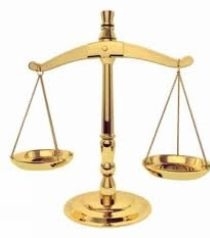Lien - The Power
The Lien
Dear Friend,
You will need to overcome the lien on your propery in order to control access and possession of the propery over the mortgage company, or bank's lien. A Lien gives your creditors power over you since you have signed a mortgage which secures the lien on your propery.
Here is how it work:
When you signed the mortgage or deed of trust, these instruments gave them the right to place a lien on the property, and this lien will remain forever, unless DISCHARGED by full payment, or by operation of law. So whoever has the lien, has the power.
Here is Black's Law Legal Definition of a Lien: (Read Below)
1. What is a Lien:
Black's Law Dictionary - 9th Edition:
Lien or First LIen:
lien (leen or lee-ən), n. (16c) A legal right orinterest that a creditor has in another'sproperty, lasting usu. until a debt or duty that it secures is satisfied. ● Typically, the creditor does not take possession of the property on which the lien has been obtained. Cf. PLEDGE(3). [Cases: Liens
Click Here for Wiki Pedia's Definition of a Lien
Equitable lien
In common-law countries, equitable liens give rise to unique and difficult issues. An equitable lien is a non-possessory security right conferred by operation of law, which is similar in effect to an equitable charge. It differs from a charge in that it is non-consensual. It is conferred only in very limited circumstances, the most common (and least ambiguous) of which is in relation to the sale of land; an unpaid vendor has an equitable lien over the land for the purchase price, notwithstanding that the purchaser has gone into occupation of the property. It is seen as a counterweight to the equitable rule which confers a beneficial interest in the land on the purchaser once contracts are exchanged for purchase.
It is a matter of conjecture how far equitable liens extend outside of the unpaid vendor's lien. Equitable liens have been held to exist in a number of cases involving choses in action, but not yet in relation to chattels.The Australian courts have been the most receptive towards equitable liens in relation to personal property (see Hewett v Court (1983) 57 ALJR 211, but a review of the cases still leaves a lack of clarity in relation to the principles upon which an equitable lien will be imposed.
THE UCC 1 LIEN
What Is a UCC Lien?
A UCC lien refers to a lien that is perfected by following the requirements of the UCC, or Uniform Commercial Code. The UCC is a collection of standardized laws on the contracting and trade of goods that has been adopted by the majority of states in the U.S. A UCC lien usually results when an entity lends money to a debtor, and the debtor pledges collateral to the lender in exchange for the loan.
Creation
A UCC lien is created when two parties execute a security agreement. A security agreement may be a prerequisite for a lender to loan money to a small business. A security agreement establishes the terms of the lien that one party will acquire on the property of the other party. For example, the security agreement may provide that the lender will acquire a lien on all of the equipment and inventory of the small business. In exchange, the small business will obtain a loan.
Perfection
A UCC lien must also be perfected if it is to be valid against other creditors and lienholders. Perfection refers to the statutory requirements in the UCC to complete the lien. Under the UCC, perfection of a lien is accomplished when the holder of the lien files a form UCC-1 Financing Statement with the Secretary of State (or its equivalent) in the state where the small business is located. The financing statement gives a description of the lien, the identity of the lienholder and the identity of the debtor. The financing statement is a public record, and it gives notice of the lien.
Purpose
The purpose of a UCC lien is to secure a lender's interest in repayment. Specifically, the lender will obtain a lien on collateral of the small business. If the small business defaults on repayment of the loan, the lender will be able to look to the collateral for repayment by foreclosure, or seizure and sale of the property. A UCC lien, in this sense, is very similar to a mortgage, in which the lender obtains a lien on a house while in repayment.
Renewal and Termination
The UCC provides that UCC-1 financing statements have an effective duration of five years. This means that if the financing statement is not renewed by the filing of a UCC renewal, the statement lapses and the lien becomes unperfected. This means that the lien may not be recognized if challenged in court by another lienholder or creditor of the small business. The lender must also file a UCC termination statement if the loan is paid in full. The termination statement gives notice that the lien is no longer effective.




